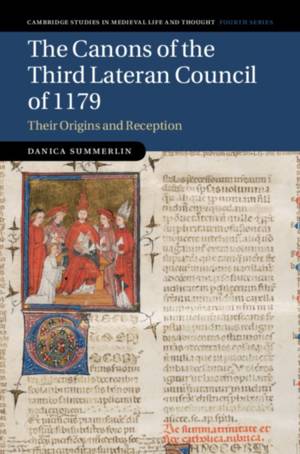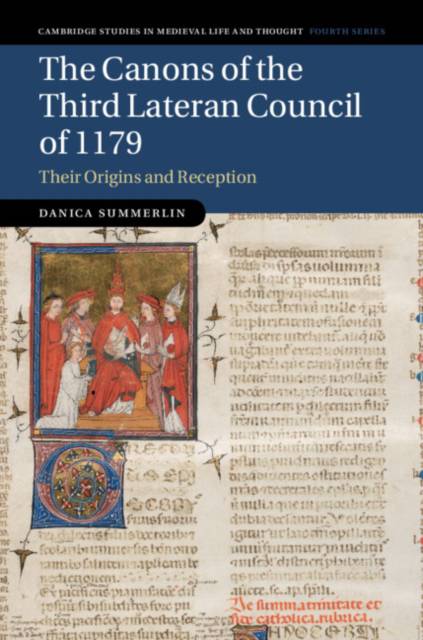
- Afhalen na 1 uur in een winkel met voorraad
- Gratis thuislevering in België vanaf € 30
- Ruim aanbod met 7 miljoen producten
- Afhalen na 1 uur in een winkel met voorraad
- Gratis thuislevering in België vanaf € 30
- Ruim aanbod met 7 miljoen producten
Zoeken
€ 125,95
+ 251 punten
Uitvoering
Omschrijving
Alexander III's 1179 Lateran Council, was, for medieval contemporaries, the first of the great papal councils of the central Middle Ages. Gathered to demonstrate the renewed unity of the Latin Church, it brought together hundreds of bishops and other ecclesiastical dignitaries to discuss and debate the laws and problems that faced that church. In this evaluation of the 1179 conciliar decrees, Danica Summerlin demonstrates how these decrees, often characterised as widespread and effective ecclesiastical legislation, emerged from local disputes which were then subjected to a period of sifting and gradual integration into the local and scholarly consciousness, in exactly the same way as other contemporary legal texts. Rather than papal mandates that were automatically observed as a result of their inherent papal authority, therefore, Summerlin reveals how conciliar decrees should be viewed as representative of contemporary discussions between the papacy, their representatives and local bishops, clerics, and scholars.
Specificaties
Betrokkenen
- Auteur(s):
- Uitgeverij:
Inhoud
- Aantal bladzijden:
- 310
- Taal:
- Engels
- Reeks:
- Reeksnummer:
- nr. 116
Eigenschappen
- Productcode (EAN):
- 9781107145825
- Verschijningsdatum:
- 13/02/2020
- Uitvoering:
- Hardcover
- Formaat:
- Genaaid
- Afmetingen:
- 157 mm x 231 mm
- Gewicht:
- 589 g

Alleen bij Standaard Boekhandel
+ 251 punten op je klantenkaart van Standaard Boekhandel
Beoordelingen
We publiceren alleen reviews die voldoen aan de voorwaarden voor reviews. Bekijk onze voorwaarden voor reviews.











